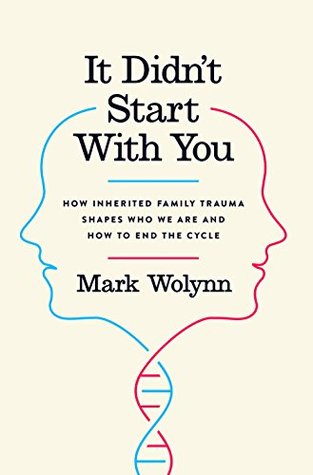More on this book
Community
Kindle Notes & Highlights
by
Mark Wolynn
Sleeping inside each of them were fragments of traumas too great to be resolved in one generation.
I feel very strongly that I am under the influence of things or questions which were left incomplete and unanswered by my parents and grandparents and more distant ancestors. It often seems as if there were an impersonal karma within a family, which is passed on from parents to children. It has always seemed to me that I had to . . . complete, or perhaps continue, things which previous ages had left unfinished. —Carl Jung, Memories, Dreams, Reflections
“Parents that did not wish to have a child, parents that are continuously concerned about their own and consequently their offspring’s chances for survival, women who sustain physical and emotional abuse during their pregnancy all represent situations where adverse environmental cues surrounding the birth of their child can be passed on to the offspring.”
Yehuda claims that children of PTSD-stricken mothers are three times more likely to be diagnosed with PTSD than children in her control groups. She also finds that children of survivors are three to four times more likely to struggle with depression and anxiety, or engage more in substance abuse, when either parent suffered from PTSD.
Yehuda and her team have also been able to distinguish differences in a child’s symptoms based on whether the mother or the father passed on the PTSD.49 Paternal PTSD, she discovered, increases the likelihood that the child will feel “dissociated from [his or] her memories,” whereas maternal PTSD increases the likelihood that a child will have difficulty “calming down.”


